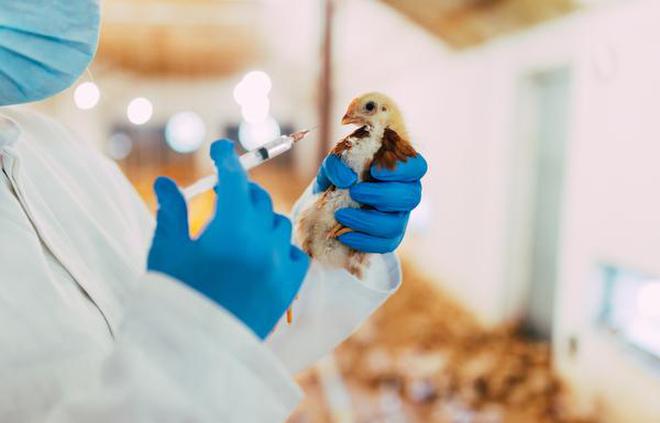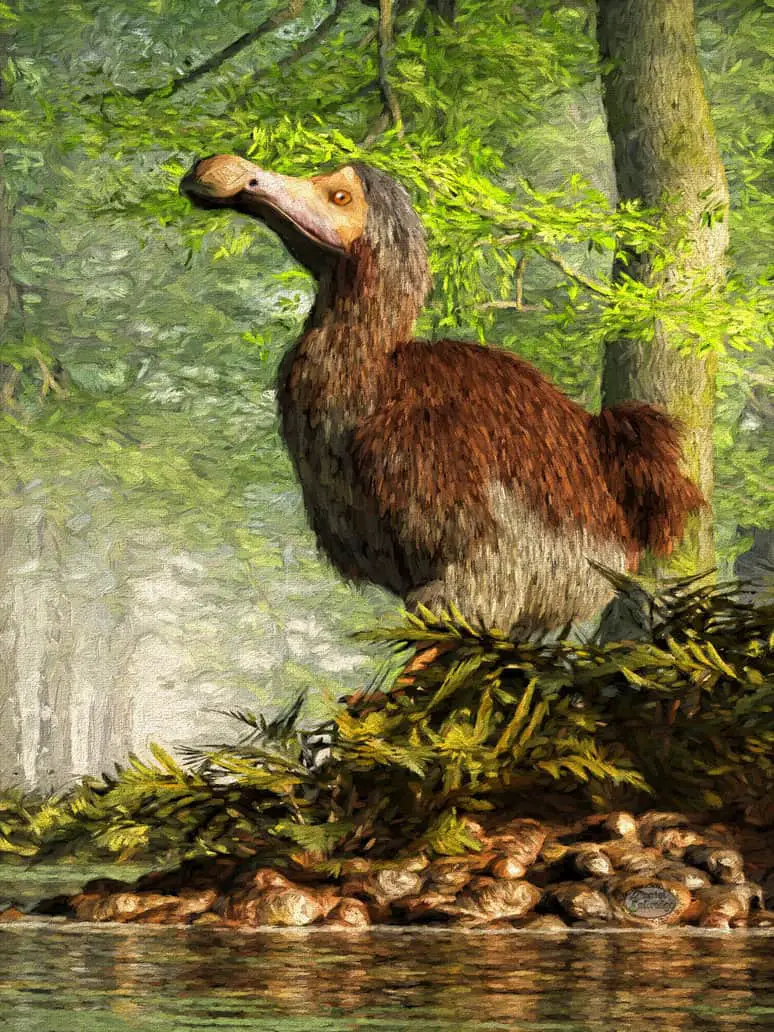Saturday, November 17, 2018
Friday, October 12, 2018
New antibody for cancer treatment
A team of researchers in Spain, Switzerland and the U.S. has homed in on a specific antibody, called the p95HER2-T cell bispecific antibody (TCB), that can successfully guide immune cells, known as lymphocytes, directly to cancerous ones for their targeted killing. Among the key hurdles in cancer immunotherapy — an emerging approach to cancer medicine — is to ensure that these therapeutics only target cancerous cells and not healthy tissue. This direct delivery is achieved thanks to the p95HER2 protein, which is only located in tumour cells. The study represents a new therapeutic avenue and fresh hope for patients who have ceased to respond to current therapies. This novel immune-based approach, say the researchers involved, can be used to tackle certain HER2+ breast cancers through its exclusive targeting of cancerous cells. Each antibody molecule has a bipartite structure containing two protein-binding sites. This means that they can simultaneously attach to immune cells and cancerous ones as well as take the lymphocytes hand-in-hand directly to the malignant cells for their subsequent destruction. The findings have been published in Science Translational Medicine.
SOURCE:THE HINDU
A team of researchers in Spain, Switzerland and the U.S. has homed in on a specific antibody, called the p95HER2-T cell bispecific antibody (TCB), that can successfully guide immune cells, known as lymphocytes, directly to cancerous ones for their targeted killing. Among the key hurdles in cancer immunotherapy — an emerging approach to cancer medicine — is to ensure that these therapeutics only target cancerous cells and not healthy tissue. This direct delivery is achieved thanks to the p95HER2 protein, which is only located in tumour cells. The study represents a new therapeutic avenue and fresh hope for patients who have ceased to respond to current therapies. This novel immune-based approach, say the researchers involved, can be used to tackle certain HER2+ breast cancers through its exclusive targeting of cancerous cells. Each antibody molecule has a bipartite structure containing two protein-binding sites. This means that they can simultaneously attach to immune cells and cancerous ones as well as take the lymphocytes hand-in-hand directly to the malignant cells for their subsequent destruction. The findings have been published in Science Translational Medicine.
SOURCE:THE HINDU
Antibiotics to grow farm animals raise superbug risk

The world’s biggest animal drugs company has been accused of double standards and of exposing consumers in India to “higher levels of risk” by selling antibiotics for purposes now banned in Europe and the U.S.
Zoetis, the largest producer of veterinary medicines, is supplying Indian farmers with antibiotics to help their animals grow faster. The practice should be banned worldwide, according to the World Health Organisation (WHO), because it increases the prevalence of resistant bacteria that can infect humans and cause deadly and untreatable infections.
The company stopped advertising antibiotics as growth promoters to American farmers almost two years ago. Zoetis publicly supported new laws in the U.S. banning this abuse of antibiotics as part of its “continued commitment to antibiotic stewardship”. However, Zoetis continues to sell antibiotics directly to Indian farmers with claims on the company’s Indian website that they will make animals grow bigger and faster.
This is not currently against Indian law although the government has called for it to end and Maharastra banned the indiscriminate use of antibiotics in agriculture after a Hindu/Bureau of Investigative Journalism report earlier this year.
Abdul Ghafur, a professor in infectious diseases who brought together medical societies and the Indian government in 2012 to create a plan to tackle antibiotic resistance, known as the Chennai Declaration, said Zoetis is adopting “double standards”. “If an American company follows one policy in America, they should follow the same policy in India,” he added.
Double standards
Thomas Van Boeckel, a researcher at the Swiss Federal Institute of Technology (ETH Zurich) who has mapped antibiotic use in agriculture, said: “It is blatantly clear that Zoetis is using a double standard in the way it is willing to expose consumers in India to higher levels of risk than in the United States.” Zoetis says it complies with the law in each location where it operates.
The unnecessary use of antibiotics in human medicine and agriculture, such as their use to make animals grow faster rather than treat disease, are major contributors to growing levels of resistant bacteria. It is estimated 1,00,000 babies a year in the country die from infections from resistant bugs. Worldwide they’re believed to kill 7,00,000 people, according to a British government-commissioned review in 2016. WHO has called antibiotic resistance one of the greatest threats to public health.
Zoetis, a former subsidiary of pharmaceutical giant Pfizer, has previously said it is “a leader in providing ongoing education to veterinarians and livestock producers on the proper use of antimicrobial drugs”. But the multibillion dollar U.S. company still sells its antibiotics to farmers in India, where regulation and enforcement is more lax.
WHO, the World Organisation for Animal Health (OIE) and the Food and Agriculture Organisation (FAO) have called for a worldwide ban on the use of antibiotics to fatten farm animals — a practice already banned in the EU and U.S. — in an attempt to stem the rising threat of resistance.
Illegal sale
Zoetis said that when used “properly and responsibly according to their approved indications” and “under the supervision of a veterinary professional” its products do not contribute to drug resistance and do not pose a threat to public health.
But unnecessarily giving healthy animals antibiotics — such as their use to help fatten livestock — is fuelling the rise of superbugs, according to WHO. And, despite Zoetis’ stance they should be used under the supervision of a vet, they can be bought without a prescription in India.
In veterinary drug stores in Hyderabad, the Bureau found a number of antibiotics manufactured by Zoetis, which are used to fatten animals, being sold over the counter without a prescription. A Bureau reporter, posing as a veterinary drug store owner, also spoke to a member of Zoetis’ Indian sales team who said it typically sold these antibiotics directly to farmers.
Ahead of new laws introduced last year in the U.S. banning the use of antibiotics as growth promoters, Zoetis voluntarily began to remove such claims from its products there. In 2013, Zoetis said it “supports the FDA’s efforts to voluntarily phase out growth promotion indications for medically important antibiotics”. Meanwhile, in India Zoetis is selling Neftin-T, which contains the antibiotic tylosin. Zoetis recommends feeding Neftin-T to chickens to “improve weight gain and FCR [feed conversion rate]”.
Tylosin is not only critically important to animal health, it has been banned for use as a growth promoter in the EU since 1998 because of fears it fuels resistance to erythromycin, which is used to treat chest infections and other human diseases. WHO classes erythromycin as critically important to human health.
The practice of using antibiotics to make animals grow faster was banned completely in the EU in 2006.
Pharmaceutical companies earn about $5 billion a year from worldwide sales of antibiotics for livestock, according to Animal Pharm. As one of the world’s leading producers of medicated feed additives — many of which contain antibiotics — Zoetis takes a significant slice of this.
Banned abroad
Zoetis faces a dwindling market in U.S. since the ban last year for these products but expects that increased sales elsewhere will more than compensate in the future. Speaking to investment analysts in February, Zoetis CFO Glenn David said, despite the downturn in the U.S., he still expects to see sales of medicated feed additives rise “as the emerging markets become more industrialised”.
Animals reared for meat in the major emerging economies of Brazil, Russia, India, China and South Africa are expected to consume double the amount of antibiotics in 2030 than they did in 2010.
Responding to the Bureau’s findings, Zoetis said: “Each country enacts regulations appropriate for their market needs and standards, and we work with the national regulatory authorities in various countries, including India, to understand, respect and comply with local regulatory interpretation and oversight.”
Experts are particularly concerned about the widespread use of a ‘last hope’ antibiotic on Indian poultry farms. Colistin is often used to treat seriously ill people with infections that have become resistant to almost all other drugs and is deemed one of the “highest priority, critically important” antibiotics by WHO as it is so crucial to human medicine.
Although none of Zoetis’ growth promoters contain colistin, a number of major Indian poultry companies have been found to use the drug, spreading fears about how much longer one of our last lines of defence against highly resistant infections will be effective.
A Bureau investigation earlier this year found Venky’s, one of the country’s biggest chicken producers which supplies Indian branches of fast food chains KFC, McDonald’s, Pizza Hut and Dominos, to have been providing colistin to farmers to help their birds grow bigger. Venky’s has since removed these growth promotion claims from the packaging, which also now says a veterinary prescription is needed. But the Bureau was still able to purchase it recently in an Indian drug store without a prescription.
Venky’s said it is “manufacturing Colis-V (colistin sulphate) with due approval from the Food & Drug Administration, Government of Maharashtra, India. The usage of Colis-V (colistin sulphate) in poultry farming is based on advice from Registered Veterinary Practitioners only.”
Similarly, another leading Indian poultry producer, Simran Group Farms, sells a colistin growth promoter under the brand name Vetline India. Simran Group Farms did not respond to multiple requests to comment.
Fears about growing resistance to a drug crucially important to human health has led some to call for an outright ban of colistin use on farms. The discovery of a colistin-resistant gene that can pass between bacteria, conferring resistance to bugs never exposed to the drug, sent shockwaves through the medical community in 2015. This transfer will likely accelerate the spread of resistance to colistin, further boosted by the rampant use of the antibiotic on farms in many countries. Scientists believe the gene originated in bacteria in Chinese livestock, but it has since been found across five continents.
Timothy Walsh, a professor at Cardiff University who made the discovery in 2015, called for a worldwide ban on colistin use in agriculture.
“I’ll be OK, but my children and my children’s children are seriously going to grow up in a world where we have no viable antibiotics because of unrivalled stupidity” he said.
In 2016, the British government published a major review of the global threat of superbugs, which called for vast reductions in the use of antibiotics in agriculture worldwide. While colistin can still be prescribed on British farms, its use has dramatically reduced in recent years.
But growth promoting antibiotics remain widely available to Indian farmers through a number of international and domestic pharmaceutical companies. The Bureau found multiple of examples of Indian drug manufacturers selling colistin as a growth promoter for chickens, including Neospark, Kaizen Bio Sciences and Vet-Needs Labs. While relatively unknown abroad, their products are widely available online in India, where farmers are given unrestricted access to some of the most important antibiotics to human health.
Neospark said, “Officially there is no ban in India for the specified usage of colistin in farm animals. As law abiding company, Neospark never deviates the law of the land.”
Kaizen Bio Sciences and Vet-Needs Labs didn’t respond to multiple requests for comment.
Since the Bureau’s earlier investigation into the use of colistin in Indian poultry farms, the Maharastra state has ruled all animal drug stores should stop selling antibiotics to farmers without a prescription, after a court order. But in other states, no such regulations are in place.
Talking of the continued use of the last hope antibiotic on farms worldwide, Mr. Walsh said: “I predict that colistin as a drug will be dead in 10 years time. And given what is in the pipeline - which is next to nothing - and given the plasticity of bacteria and their ability to evolve and adapt and survive and prosper, I see no good end to this story at all.”
SOURCE :THE HINDU
SOURCE :THE HINDU
Saturday, September 8, 2018
 |
A study of ants provides information on the evolution of social insects.One of the great puzzles of evolutional biology is what induced certain living creatures to abandon solitary existence in favor of living in collaborative societies, as seen in the case of ants and other social, colony-forming insects. A major characteristic of so-called eusocial species is the division of labor between queens that lay eggs and workers that take care of the brood and perform other tasks. But what is it that determines that a queen should lay eggs and that workers shouldn't reproduce? And how did this distinction come about during the course of evolution? Evolutionary biologist Dr. Romain Libbrecht has been considering these problems over the past years and in cooperation with researchers at Rockefeller University in New York City has found a completely unexpected answer: one single gene called insulin-like peptide 2 (ILP2), which is probably activated by better nutrition, stimulates the ovaries and triggers reproduction.Father's diet could affect the long-term health of his offspring;
New research has shown that a lack of protein in a father's diet affects sperm quality which can have a direct impact on the long-term health of their offspring.
Researchers 3D print prototype for 'bionic eye
Researchers at the University of Minnesota have fully 3D printed an image sensing array on a hemisphere, which is a first-of-its-kind prototype for a "bionic eye."
A team of researchers at the University of Minnesota have, for the first time, fully 3D printed an array of light receptors on a hemispherical surface. This discovery marks a significant step toward creating a "bionic eye" that could someday help blind people see or sighted people see better. |
Thursday, September 6, 2018
 |
| DODO @ A RECENTLY EXTINT FLIGHTLESS BIRD |
The dodo (Raphus cucullatus) is an extinct flightless bird that was endemic to the island of Mauritius, east of Madagascar in the Indian Ocean. The dodo's closest genetic relative was the also extinct Rodrigues solitaire, the two forming the subfamily Raphinae of the familyof pigeons and doves. The closest living relative of the dodo is the Nicobar pigeon. A white dodo was once thought to have existed on the nearby island of Réunion, but this is now thought to have been confusion based on the Réunion ibis and paintings of white dodos.
Wednesday, September 5, 2018
Subscribe to:
Posts (Atom)
























